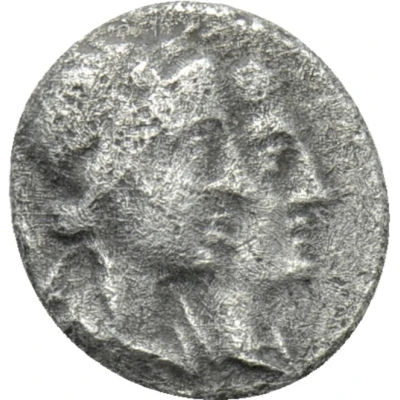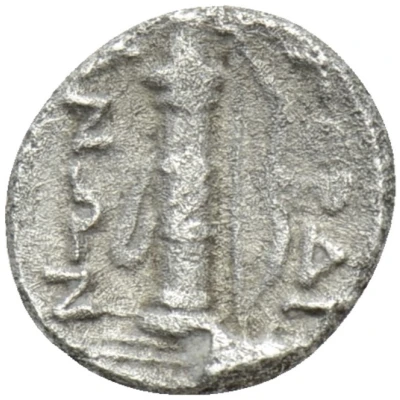


© Numismatik Naumann GmbH
Obol 300 BC - 100 BC
| Silver | 0.61 g | 9.0 mm |
| Issuer | Gordion (Phrygia) |
|---|---|
| Type | Standard circulation coin |
| Years | 300 BC - 100 BC |
| Value | Obol (⅙) |
| Currency | Drachm |
| Composition | Silver |
| Weight | 0.61 g |
| Diameter | 9.0 mm |
| Shape | Round (irregular) |
| Technique | Hammered |
| Demonetized | Yes |
| Updated | 2024-10-10 |
| Numista | N#189723 |
|---|---|
| Rarity index | 100% |
Reverse
Quiver and bow
Script: Greek
Lettering:
ΓΟΡΔΙ
ΑΝΩΝ
Interesting fact
The Obol coin from Gordion (Phrygia) was used as a form of currency in ancient Greece and its design has been found to be quite unique. The coin features a distinctive 'dotted' pattern on its surface, which is believed to have been created using a technique called 'punch-marking'. This technique involved punching small dots into the metal using a sharp tool, creating a textured surface that was difficult to counterfeit. This feature, along with the coin's small size and light weight, made it an ideal currency for everyday transactions in ancient Greece.